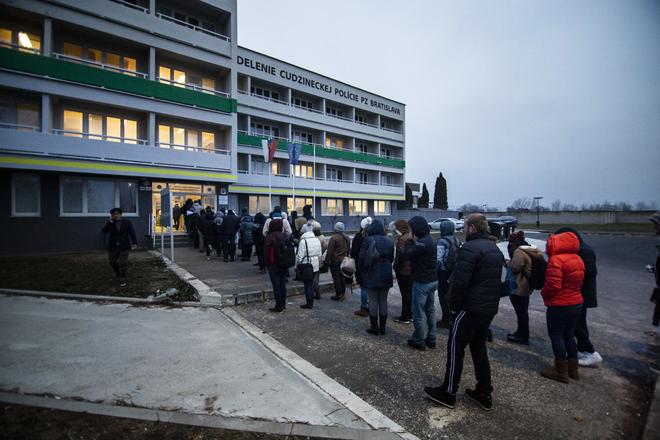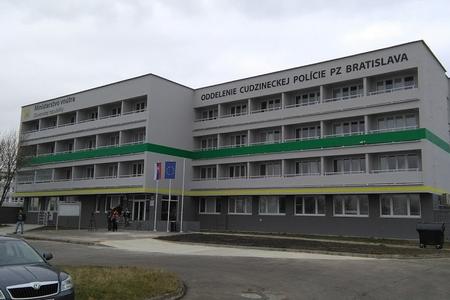It is 6:30 and dozens of people are standing in front of the Foreigners' Police Department in Bratislava despite the fact that it opens at 8:00. One of the foreigners is just waking up and coming out of a sleeping bag in a small garden in front of the building. People barely speak to each other, sometimes exchanging a few words to get rid of the boredom.
"I slept here all night like a homeless person," a young dental technician from Macedonia told The Slovak Spectator. He arrived the previous evening to make sure he would get his turn despite the long waiting line. He did not want to reveal his name because he fears that, after criticism, the authorities could give him trouble.
The Macedonian also manages an unofficial waiting order list in which the clients of the department write their names. Clients are supposed to take a ticket from queuing machines when the department opens at 8:00. But the number of clients is so high that they have to come earlier and create unofficial waiting lists to know whose turn it is.
Approximately one hour before opening, the Macedonian is standing on the stairs before the building’s entrance and reads the names of people out loud. They stand in the order of their number in the list. People are joking that he cannot pronounce the Asian names properly.
The Slovak Spectator visited Foreigners' Police departments in Bratislava, Žilina and Dunajská Streda from October to December. At all of them, people have to come at night and often a day before they plan to visit the office because the police cannot deal with such a high number of clients.
Police admit that they are having a problem at several departments. The reason is that the number of people from non-EU countries working in Slovakia has been increasing. Last June, approximately 4,900 of these foreigners had a temporary residence in Slovakia. In June 2018, the number rose to almost 10,000.
“Currently it is possible to talk about the enormous pressure of several Foreigners' Police departments,” the police presidium writes in its statement.
Zuzana Vatráľová of the International Organization for Migration (IOM) points out that the authorities will have to adapt to the increasing number of foreign citizens in the Slovak Republic. If they do not, foreigners may choose another country even though the Slovak economy needs them.
Almost nothing has changed
The situation in Žilina is similar to the one in Slovakia. The local branch of the Foreigners' Police is about three kilometres from the railway station. It is a frequent destination for local taxi drivers.
"I drive people there very often,” taxi driver Roman Pinčák told The Slovak Spectator. “Sometimes they are coming even at 2:00 from the surrounding towns.”





